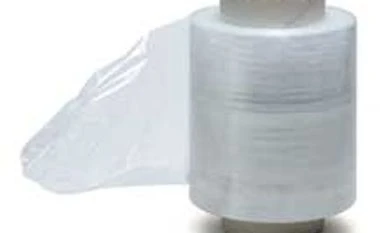The world market for nanocellulose is projected to reach $277.7 million in 2019 from $ 46.8 million in 2014, reflecting a five-year compound annual growth rate (CAGR) of 42.8 percent, according to a BCC Research new report. Cellulose nanocrystals as a segment reached $18 million in 2014 and is expected to approach $116.6 million in 2019, with a CAGR of 45.3 percent.
Nanocellulose (NC) is quickly becoming commercially available worldwide, and the production capacity is increasing exponentially, added the report. NC is currently being used in nearly unlimited applications and sectors because of its outstanding properties, rapidly decreasing manufacturing costs, and a positive toxicological profile.
Nanocellulose is a material derived from cellulose that displays extraordinary chemical and mechanical properties, such as high stiffness, comparable to that of Kevlar, and tensile strength. Due to its exotic properties, NC is currently being tested on a variety of applications across several industries: automotive and aerospace, packaging, electronics, pharmaceutical and medical devices, and many more. Product development is at its early stages, with the first commercial products quickly approaching the market.
However, the industry faces many challenges, including the improvement of international standards to ensure quality and facilitate trade. Remarkably, NC production may lead to the adoption of environment-friendly manufacturing processes in response to new international clean air mandates.
Some of the most promising applications of nanocellulose include automotive parts, films for packaging, paper products, biomedical, paints and polymers coating. “Currently, almost all NC is used in research for new product development. There are a few products on the market in the biomedical field that generate modest sales. However, new NC-based products are forecast to land on the market within the next five years, including paper products, packaging materials and paint. Automotive parts will also follow, and play a pivotal role in the market,” said Alessandro Varotto, analyst, BCC Research.
Nanocellulose (NC) is quickly becoming commercially available worldwide, and the production capacity is increasing exponentially, added the report. NC is currently being used in nearly unlimited applications and sectors because of its outstanding properties, rapidly decreasing manufacturing costs, and a positive toxicological profile.
Nanocellulose is a material derived from cellulose that displays extraordinary chemical and mechanical properties, such as high stiffness, comparable to that of Kevlar, and tensile strength. Due to its exotic properties, NC is currently being tested on a variety of applications across several industries: automotive and aerospace, packaging, electronics, pharmaceutical and medical devices, and many more. Product development is at its early stages, with the first commercial products quickly approaching the market.
However, the industry faces many challenges, including the improvement of international standards to ensure quality and facilitate trade. Remarkably, NC production may lead to the adoption of environment-friendly manufacturing processes in response to new international clean air mandates.
Some of the most promising applications of nanocellulose include automotive parts, films for packaging, paper products, biomedical, paints and polymers coating. “Currently, almost all NC is used in research for new product development. There are a few products on the market in the biomedical field that generate modest sales. However, new NC-based products are forecast to land on the market within the next five years, including paper products, packaging materials and paint. Automotive parts will also follow, and play a pivotal role in the market,” said Alessandro Varotto, analyst, BCC Research.
)